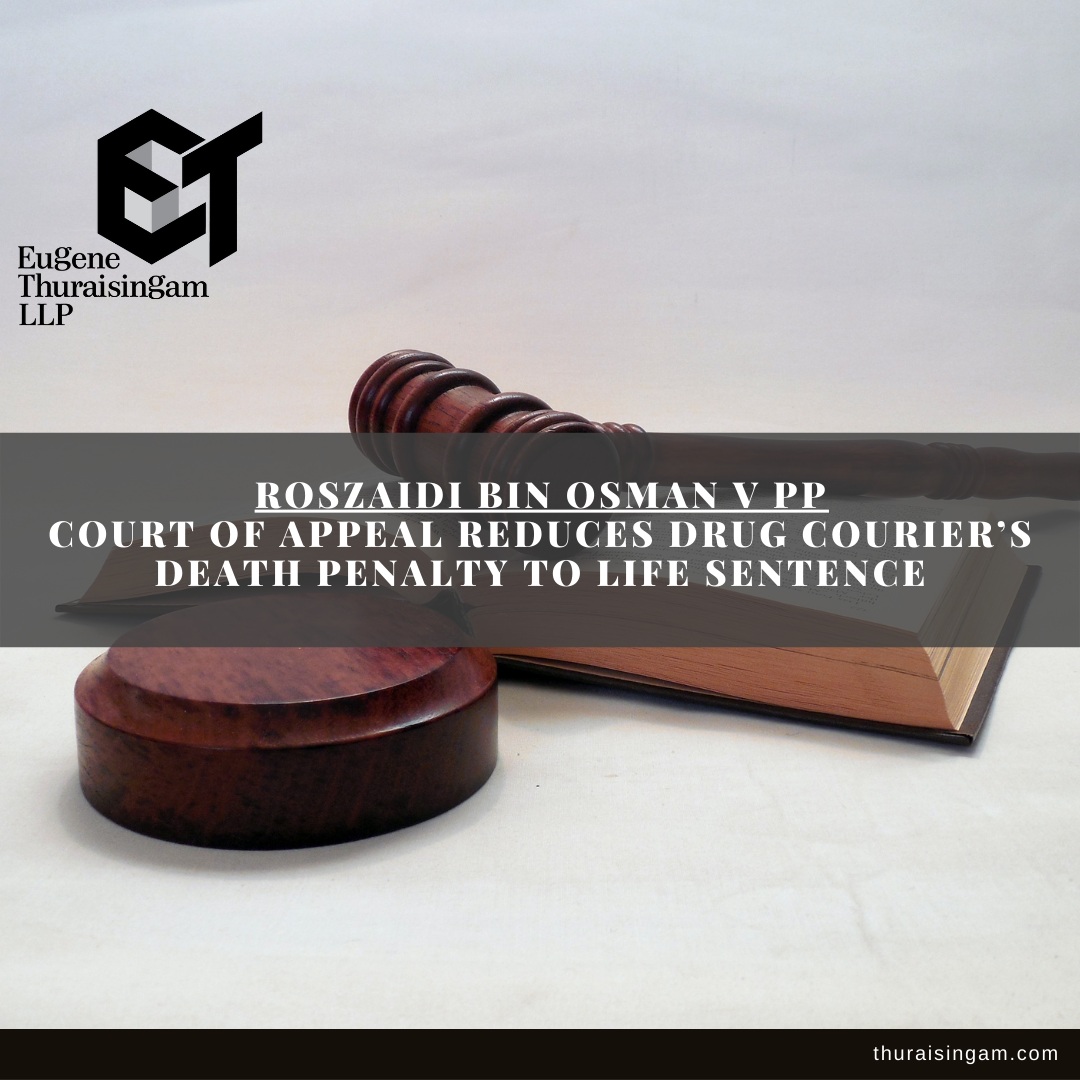Principle of Proportionality: Criminal Offender’s Fetishism
“There is no society where the rule does not exist that the punishment must be proportional to the offence.”
-Emile Durkheim, 1938
Public Prosecutor v Low Ji Qing [2019] SGHC 174
1. Introduction
This appeal was concerned with this fundamental principle of sentencing – proportionality. How does it interplay with the seemingly conflicting principle of specific deterrence, and in particular, the related principle of escalation when the court is faced with a habitual offender?
2. Issues on Appeal and Holdings
These issues were complicated by the offender’s mental disorder – fetishism – which the prosecution sought to argue was an irrelevant consideration because a psychiatrist from the Institute of Mental Health had opined that there was “no substantive contributory link” to the offending behaviour.
The Honourable Chief Justice disagreed, stating that the prosecution had “missed the finer points of the respondent’s situation.” Significantly, this case makes clear that even if there is found to be no substantive contributory link between an offender’s mental disorder and the offending behaviour, it is still necessary to consider the extent to which the said mental disorder could be relevant to the present offences. In other words, the relevance of a mental disorder does not simply turn on a single phrase within a psychiatric report.
As regards the principle of escalation, the Honourable Chief Justice found it inapplicable to the present case. He agreed with our submissions that there was no escalation on the facts of this case, that in any event specific deterrence had to be attenuated somewhat the offender’s mental condition at the time, and that recognition should be given to the offender’s voluntary attendance of 30 psychotherapy sessions.
Turning to the principle of proportionality, the Honourable Chief Justice rejected the prosecution’s submission that the offender should not be given credit for the fact that no economic loss was suffered by the victims. This was especially so, given that economic harm is the most obvious proxy of harm in the context of the offence of theft, and the fact that the offender had voluntarily returned the wallets because he was feeling conflicted over the offences in the immediate aftermath of their commission.
3. Prosecution’s appeal was dismissed
The Honourable Chief Justice therefore upheld the sentence imposed by the District Judge and dismissed the prosecution’s appeal, but not before observing that Parliament may wish to consider revisiting the statutory provisions relating to the Mandatory Treatment Order, which, as they stand now, do not avail themselves to the present offender.
This appeal was conducted by Chooi Jing Yen pursuant to an assignment by the Criminal Legal Aid Scheme.
We previously reported on this appeal here.






